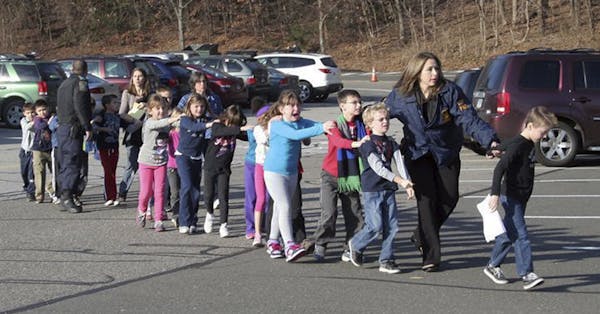The horror is beyond words: a peaceful school in a peaceful town turned upside down by a man with guns, children and teachers killed, families torn asunder, lives altered unimaginably and forever.
And then, almost as horrible, the familiarity. We have been here before, we know the drill. The details of the shooting will be particular -- the precise number of casualties, the killer's exact route, how he finally was stopped or stopped himself -- we know the drill.
We will hear of grief counselors and evacuation plans. We will learn more than we want to know about the shooter's motive and mental health. We will suffer with the grieving parents and siblings, wishing we could do more. We will all imagine ourselves in their shoes.
And, yes, we will argue again about guns, or, rather, about why our politicians are hardly even arguing about guns any more. There are those who will object, who will say gun policy has nothing to do with any single event, that tragedies should not be exploited for political purpose. We know many of our readers are among this group.
And then there will be others, ourselves included, who will say, whatever the facts of this case, that the country would be safer with fewer guns, that mass killings are more difficult with knives, that it is not the Second Amendment but political cowardice that precludes sensible regulation. That we are not supposed to exploit tragedy to talk about this issue, but that in the absence of tragedy it never gets talked about at all.
In the meantime, new names will be inscribed on that peculiar American roll call of grief -- names so ordinary that in their recitation they refute what we all would like to believe: It couldn't happen here.

The little park that could … be better
Climate change looms large this election year
For this Minnesota legislator, action targeting child abuse is intensely personal


